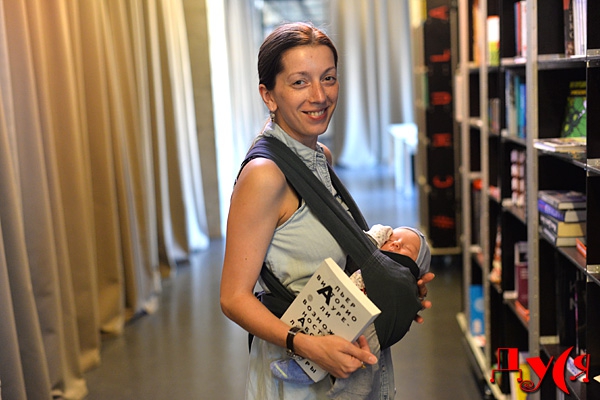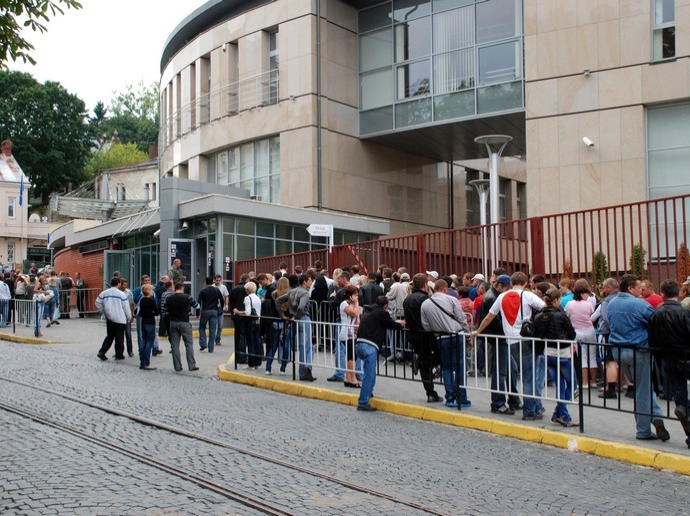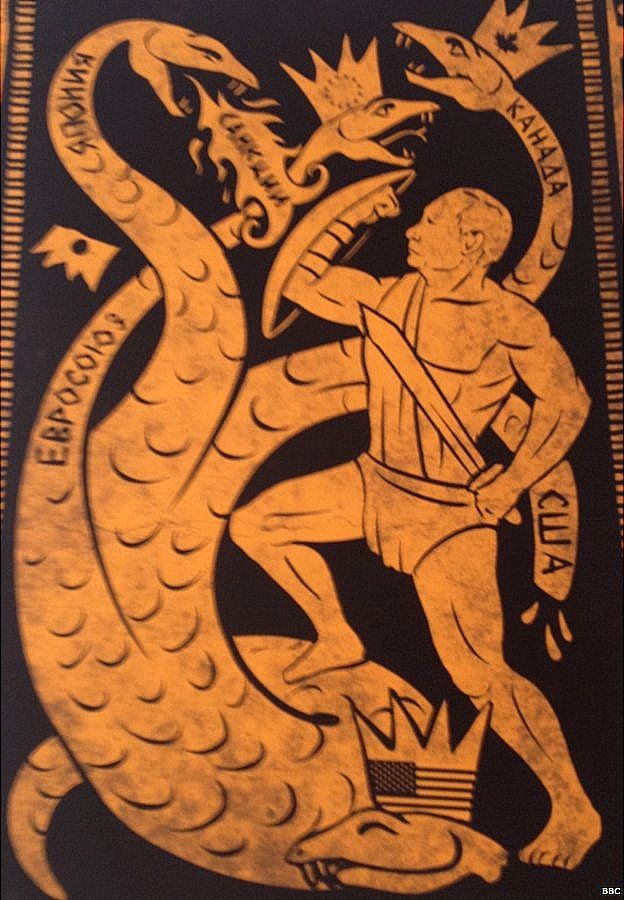Eight year-old Volodya Bobenchyk from Lviv never misses any home game of FC Karpaty Lviv and cries when his favorite team loses. He walked with Andriy Yarmolenko from Ukraine National Football team to the football field when Ukraine was playing against Latvia, and is known as the youngest football fan of the country.
“Euro-2016 is a very important event, we couldn’t exclude it from our plans. Volodya has birthday in June, we decided to make this present for him and bring him to this important for Ukraine championship. We hope we will return with a victory,” Volodya’s mother Maryana told NTN channel in February. In June, the young boys’ dreams were broken when the French Embassy refused to grant him a visa.
On 2 June, the family received a letter stating that the aim of the trip wasn’t justified. “I was denied a visa for Euro-2016 with an explanation 'aim of my trip is not clear.' I have tickets for all games of my team, two-way plane tickets and previous Schengen visas in my passport. For France, I am not a fan,” a post on Volodya’s Facebook profile says.
On 3 June, Yevropeiska Pravda, a key Ukrainian outlet reporting on European Affairs, reported that Ukraine’s MFA sent a note to the French Embassy and invited the Head of the Consular Department to provide explanations for this incident, as well as to find a possible solution.
Yevropeiska Pravda also reported about a protest in front of the French Embassy in Kyiv that will be held on 6 June. “We figured out there’s a huge number of similar visa refusals with some of the fans forced to wait for a consular decision for over a month!” a statement on the page of Facebook event says. “This looks like a systematic attitude towards Ukrainian applicants. Plus, we have questions regarding France’s position on visa free regime.”
Fort Europe: Ukrainians unwelcomed
Howsoever outraging, Volodya’s story is no surprise for Ukrainian audience. Obtaining the Schenghen visa has always been a hassle, no matter who applies and which documents they provide.
In October 2015, journalist Kateryna Sergatskova was to collect a prestigious Kurt Schork Memorial Award in the Great Britain. However, the British Embassy refused to issue a visa – without any explanations, of course.

Sergatskova is a Russian journalist who moved to Ukraine and received Ukrainian citizenship. She won the Kurt Schork Memorial award in the Local reporter category for reports from the war-torn Donbas. During the interview at the Embassy, Sergatskova wrote on Facebook, she was asked about her newborn. The woman was planning to take the several months-old baby with her which, visa-wise, might have looked suspicious, as if the mother was planning to illegally migrate.
In December 2015, a Radical Party MP experienced difficulties in obtaining a visa to Great Britain. Andriy Artemenko, a deputy chief of the European integration committee at Ukraine’s parliament, was denied a visa due to “lack of proof of his financial solvency” and “questionable” aims of visit. The deputy’s salary of 5800 UAH (a bit more than $200) didn’t look convincing despite the fact that all necessary documents, including travel tickets and hotel reservation, were submitted. The conflict was solved thanks to interference of Ukraine’s MFA, Artemenko later informed.
In January 2016, a team of sportsmen from Kirovohrad went to protest on front of the Embassy of Portugal in Kyiv. Two members of the team were denied a visa for participating in an International Brazilian Jiu-Jitsu in Lisboa, which jeopardized Ukraine’s representation. “In the Embassy, no one believes they will come back to Ukraine… They promise to review the decision in two weeks, but the championship is next week. Money for this trip was raised by the whole club, 40 thousand UAH, and it will be just wasted,” Yevhen Skyrda, chief of the club, commented then. Finally, after a lengthy picket, the sportsmen received their visas.
Twice as many visa refusals since beginning of Donbas war
According to the European Commission statistics, cited by Yevropeiska Pravda, in 2013, the last “peaceful” year, 1,7% of Ukrainians were denied a visa. In 2014 this number grew to 2,0%, and in 2015 – to 3,4%.
In particular, in last year Polish consulate in Vinnytsia denied to issue visa to 12% of applicants, next come the Dutch Embassy (7,2%), the Czech Republic (6,9%), Belgium (6,7%), and Germany (6,0%). “It's striking that the statistics between different consulates of the same country differ so much. For instance, Polish consulates in Lutsk and Kyiv have refusals 1,4% and 1,8% correspondingly,” the article states.

Majority of denials happen due to incomplete applicants’ information, old passports, and conflict in Donbas, deputy chief of MFA Olena Zerkal told Deutsche Welle. Earlier Yanosh Kollar, Hungary’s Consul in Ukraine said that in 2015 more Ukrainians were caught providing fake documents, Yevropeiska Pravda reported.
On 1 June, Reuters reported that the European Union held off agreeing to ease travel rules for Georgia on Wednesday, and Türkiye, Ukraine and Kosovo should also expect more delays in visa waiving as the bloc turns more cautious amid immigration fears.
The EU is expected to hold their first discussion on Ukraine for which a visa-free regime doesn’t only have technical but also an ideological meaning, fulfilling the country’s pro-European aspirations. Even though the EC survey found out that today Ukraine does not pose a migration risk for the EU, free travel to Europe still remains an impossible dream.





